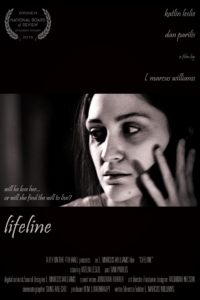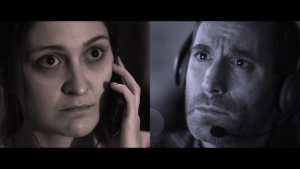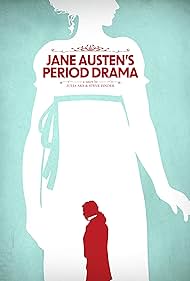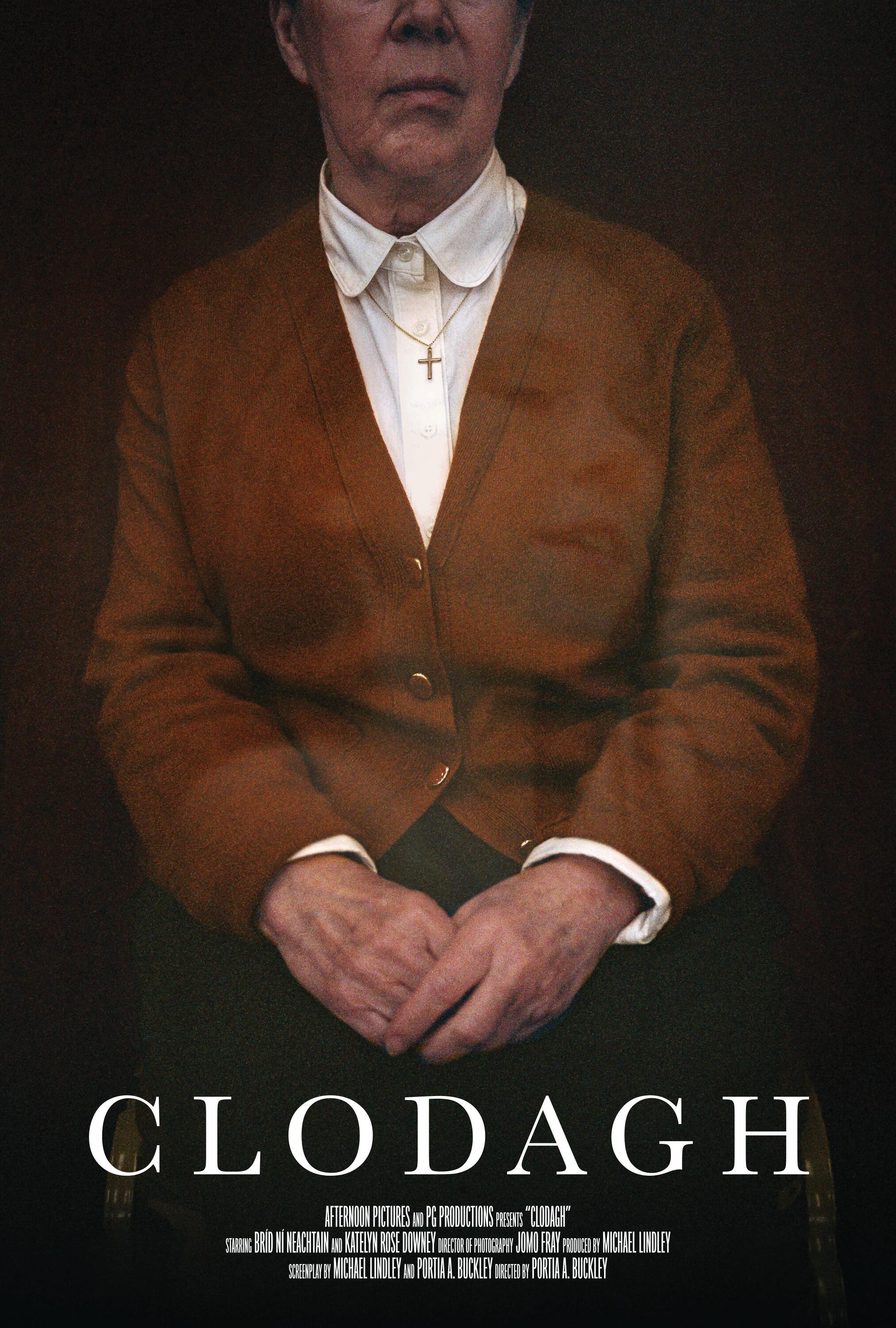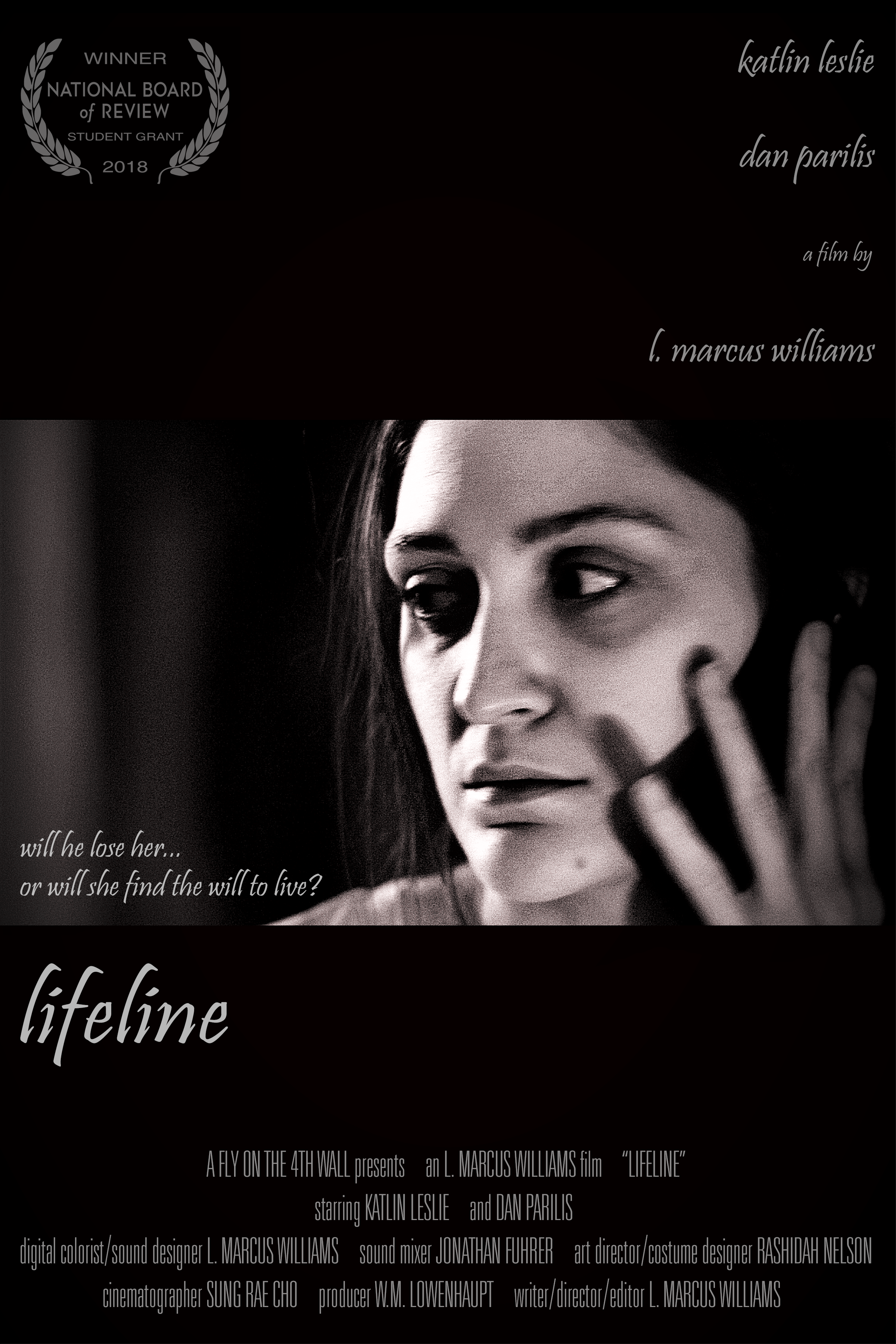
Short Film Review “Lifeline”
WATCH THE TRAILER HERE
First, the Recap:
Hopelessness. Anguish. Desperation. Pain. All feelings which we do not wish upon anyone else, yet sometimes allow to penetrate our own personal space inside when tragic events affect us directly. Stealing away any semblance of reason or rational logic, it reaches the point of believing that there’s simply no way else out but an equally devastating choice to ease the strain. Now, if you were able to speak with such a person in their time of such overt, undiluted, all-encompassing grief–do you know what you’d say? In an eerily quiet house, a young woman named Iris (Katlin Leslie) stands silently in the bathroom, staring apathetically at her reflection in the mirror even as she then opens the cabinet to reveal a bottle of pills.
Then, dialing a number on the cell phone she holds, the line rings and is summarily answered by a calm, collected male voice representing the entity she’s contacted–a suicide hotline. With a proclamation of what her intention is right at the start, the hotline rep named Ray (Dan Parilis) immediately makes every attempt to maintain their connection and talk Iris down, with a cool but intentional manner meant to ease her evident anxiety. However, Iris wastes no time making it clear that not only does she aim to end it all, but that she just wanted to have a chance to say her goodbyes to someone. What follows is a tense yet deeply heartfelt conversation that runs a gamut of emotions and soon becomes much more than just about Iris’ original intent, bringing into question whether their dialogue will or will not stop a mortal decision.
Next, my Mind:
While fully understanding and acknowledging we all process things we watch in various, often differing, ways, I honestly feel one hundred percent confident to claim that you truly have no heart if not moved to tears by the sheer, exceptionally unconcealed, stirringly affecting, blunt force hit to the soul and mind that this 17-minute short film effort from writer/director/editor L. Marcus Williams represents when it comes to executing a beautifully unflinching, powerfully compelling narrative about suicide and suicide prevention that couldn’t be a more necessary statement about the human need for genuine compassion, listening ears, truthful wisdom, and basic kindness in times of potentially fatal inner strife. This theme is quite consistently explored via the medium of film, and each time I revel at the myriad of methods directors choose to tackle the subject of suicide. But, this particular example very much stands as one of the best I’ve personally seen, and the weight of its intent strikes you to your very being, but does so in such a wonderfully uncomplicated way, which only assists in driving home the aforementioned imperative awareness we continue to require in order to find more and more means by which to prevent this heartrending circumstance from claiming lost souls like it so tragically does.
What likewise aids in this potent delivery is the fact that Williams himself has advised the film is “inspired by my own experience as both a lifeline operator and a survivor of attempted suicide”, making this project well beyond just filmmaking, but rather a transparent revealing of profoundly personal essence in order to allow us as the viewer to take in the situation depicted and really allow it to sink in with full, unadulterated intensity, emotional gravitas, and impact. I feel that yet another facet of strength the film showcases is the power of simple, caring communication between to people realizing that they’re both not alone in the struggles they face, which is an unexpected turning point in the story when roles virtually get reversed and the overwhelming sense of pathos it elicits fits the circumstances perfectly, bringing an even larger feeling of quietly riveting ardor to the proceedings while continuing to make the film’s major points as well. Our desire to know we’re not suffering on our own during moments of this level of distress is key, and how this is so effectively visualized via split screen so we mostly never lose sight of both characters is truly genius here. Plus, there is a sequence of pure silence that is one of the most convincingly heartbreaking instances I’ve witnessed, but not because of pending calamity, but rather its transformative nature in context of this tale. The finale is one that will leave you breathless, that’s all I will say, for that’s how it affected this critic amidst plenty of tearing-up moments preceding it.
Leslie is a marvel in her role as Iris, a beautiful young woman whose reached that point of no return, a misery that is initially undisclosed in its origins, but weighty enough to have her believing there’s no other way out but death. Seeing her plaintively, with an almost chillingly peaceful manner, stare at the pill bottle before making a call that will be her final human interaction is alone filled with so much intensity and haunting tension, it’s hard to think things could get any more emotive. Yet, once on the call with Ray, her insistence about why she called, her anger, her raw spirit being exposed is a tangible sensation that she grasps desperately onto, not wanting to be told why she shouldn’t end it all by a total stranger. Yet, she opens up and turns the conversation a decidedly different way, changing the entire dynamic of their talk, and watching how this affects Iris is so sublimely evocative, really causing her to sincerely connect with Ray on a level totally unanticipated. It’s all painfully real and heart-rending, making us experience every little sentiment with full conviction, therefore generating the palpable response we should have to her character, a testament to Leslie’s performance throughout the film.
Parilis brings an excellent air of controlled, unruffled, and apropos serenity to his role as Ray, a suicide hotline operator who happens to be the one to answer Iris’ call, finding out that she’s bent on killing herself, but wanted to have a last goodbye with someone before going through with it. Ray’s training shines through at first, making the attempts to calm Iris down, trying to ascertain the reasons for her decision, and offering the soothing words meant to influence a change of heart. But, even in view of her sometimes adamant resistance and consternation, the conversation gets altered to where he suddenly becomes the focus of their discourse instead of her, which seems counterintuitive given the general rules of the hotline. However, this sudden shift in interchange signals a direction of introspection for both of them that could possibly have a much larger sway on events while becoming the illustration of how much we don’t always realize that someone else’s needs might actually reflect our own as well. Ray’s visible reaction to this is grounded and believable, and Parilis the entire time maintains such a wonderfully enacted presence that is hard to not be engaged and impacted by.
As anyone can see, this theme is one that gets me every time, and to view a project like this one has only solidified my firm belief that we cannot be reminded enough about how important it is for resources to be available and people to be present for assisting those who find themselves in such a state of being. So, in total, “Lifeline” packs a needed punch, hitting us right in the heartstrings and, ideally, our conscious, propelling us to take action, hence seeing results produced to show that there’s a huge, prospectively life-altering difference between brokenness that destroys vs. brokenness that can heal. If you or anyone you know is thinking about suicide, PLEASE call the national suicide prevention lifeline at 1-800-273-8255. You are NOT alone.
As always, this is all for your consideration and comment. Until next time, thank you for reading.

